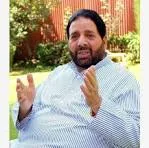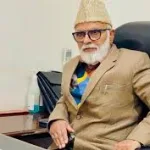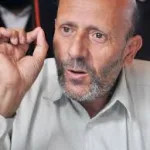New Delhi, Oct 21 : There has been a 65 per cent fall in incidents of terrorism, Left Wing Extremism and insurgency in the Northeast, Union Home Minister Amit Shah said on Saturday.
He also asserted that the country’s “three hotspots — LWE (Left Wing Extremism-hit states), the Northeast and Jammu and Kashmir — are becoming peaceful.”
The Narendra Modi government has made strict laws while maintaining a zero-tolerance policy against terrorism, the home minister told a gathering after paying homage to martyrs on Police Commemoration Day at the National Police Memorial here.
On the solemn occasion of ‘Police Commemoration Day,’ Union Home Minister and Minister of Cooperation, Amit Shah, paid his respects to the police martyrs at the National Police Memorial in New Delhi today. The event was attended by several dignitaries, including Union Minister of State for Home Affairs, Ajay Kumar Mishra, and the Union Home Secretary.
In his address, Amit Shah honoured the 36,250 brave policemen who have sacrificed their lives for the nation’s internal security and the safeguarding of its borders since India’s independence. He expressed gratitude to the families of these martyred policemen, acknowledging that the progress and success India enjoys today is built upon the sacrifices of these heroes, a sacrifice the nation will never forget.
On October 21, 1959, 10 policemen died in the line of duty during an ambush laid by heavily armed Chinese troops at the Hot Springs in Ladakh.
Since then, every year October 21 is observed to honour these martyrs and all other police personnel who died in the line of duty.
The government has also worked towards making the best anti-terrorism force in the world by setting up the “Police Technology Mission” for modernisation of the police force, he said.
Shah said the Modi government has introduced three Bills in Parliament for a comprehensive overhaul of the criminal justice system.
The three legislations will replace 150-year-old laws and guarantee all due Constitutional rights to every citizen, the minister said and added that the proposed laws will also reflect Indianness.
He said Prime Minister Modi has laid stress on ending pendency of cases in courts.
“There has been a 65 per cent fall in terror, Left Wing Extremism and insurgency incidents in the Northeast from their peak levels in the last decade due to the efforts and achievements of brave police personnel,” Shah said.
He said whether it is to combat terrorists, stop crime, maintain law and order while facing a crowd, protect citizens during disasters and accidents or be on the front line during difficult times such as the COVID-19 pandemic, police personnel have proved themselves in every situation.
Shah said internal as well as border security of any country is not possible without a vigilant police system.
Referring to the role played by police personnel in a disaster, he said in the past, through the NDRF (National Disaster Response Force), personnel of different police forces have earned a name across the world in disaster management.
“No matter how big the disaster is, when NDRF personnel reach there, people get confidence that now there is no problem as the NDRF has arrived,” he said.
Shah said the Modi government is working towards improving several schemes being run for the welfare of police personnel by making changes in them from time to time.
In recognition of the sacrifices made by police personnel and their paramount role in preserving national security and integrity, Prime Minister Narendra Modi had dedicated the National Police Memorial (NPM) in Chanakyapuri here to the nation on Police Commemoration Day in 2018.
The memorial comprises a central sculpture, the ‘Wall of Valour’ and a museum.
The central sculpture, which is a 30 feet high granite monolith cenotaph, stands for strength, resilience and selfless service of police personnel.
The ‘Wall of Valour’, on which the names of martyrs are engraved, stands as a steadfast acknowledgement of the bravery and sacrifice of police personnel who have laid down their lives in the line of duty since independence.
The museum is conceptualised as a historical and evolving exhibition on policing in India.





